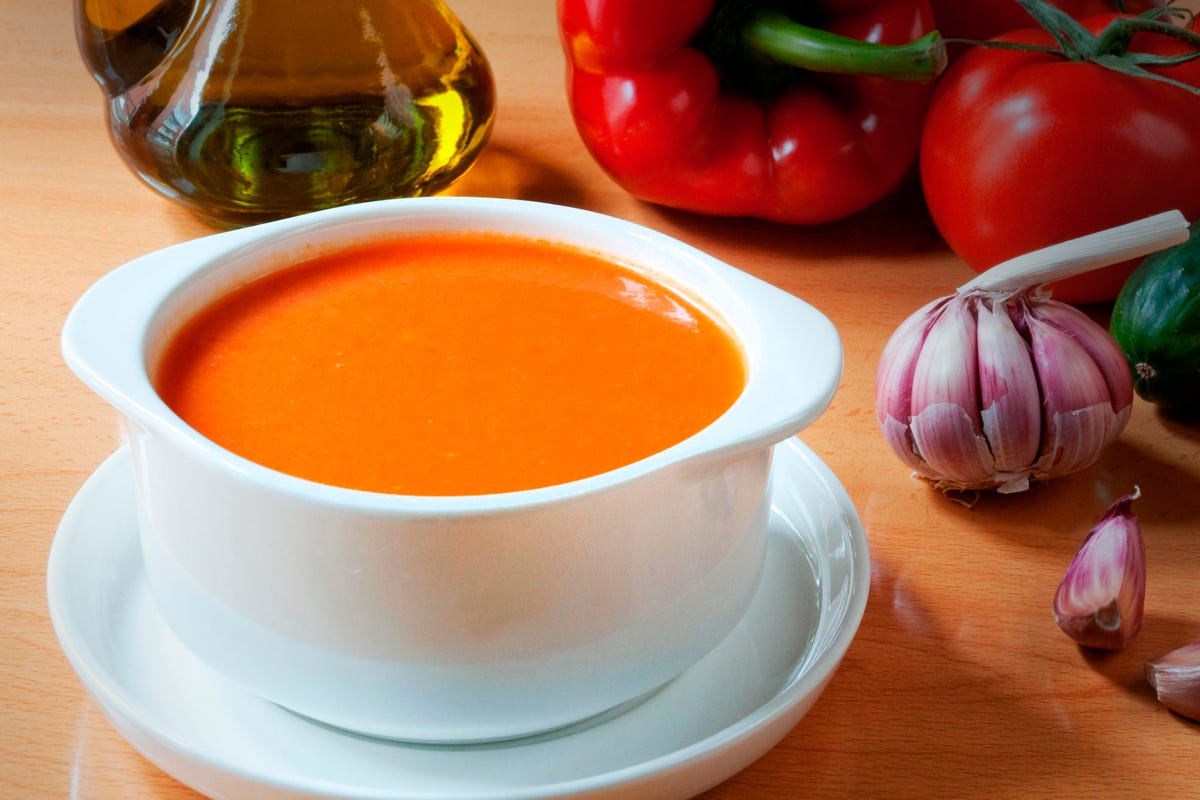With the temperatures getting higher, the air harder to breathe, and a book deadline looming like an angry sun, this seemed like an opportune time for the Sword & the Sandwich to take a break from our regularly scheduled programming. There may be news in the next few weeks that we’ll feel compelled to weigh in on — the world keeps spinning despite humanity’s best efforts, after all — and David will go on producing the Sunday posts for paid subscribers, but we’re going to take this month to focus on some other projects that we hope to share with you soon. There are still plenty of swords to sharpen and sandwiches to eat.
Rest assured, we’ll be back on Tuesday with part two of Talia’s conversation with Moira Donegan on the state of feminism in modern America. In the meantime, the hazy shade of summer currently blanketing New York reminded me of an essay Talia wrote for the Village Voice a few years ago. While much else has changed in interim, the stifling swelter of summer in the city has not. Hopefully you can take some cold comfort from Talia’s words — an abridged version of which is below — and more from her recipe for smooth, cooling Andalusian-style gazpacho.
But first, in honor of the month ahead, Talia asked me to include the poem “Answer July” by Emily Dickinson.
Answer July—
Where is the Bee—
Where is the Blush—
Where is the Hay?Ah, said July—
Where is the Seed—
Where is the Bud—
Where is the May—
Answer Thee—Me—Nay—said the May—
Show me the Snow—
Show me the Bells—
Show me the Jay!Quibbled the Jay—
Where be the Maize—
Where be the Haze—
Where be the Bur?
Here—said the Year—
How to Survive Midsummer in New York
The Village Voice, August 2, 2018
In the summer in New York, everything is covered in airborne grit; it’s not anything so clean and fine as dust, and not quite ash, just ambient black specks pirouetting through the air in a kind of Brownian motion toward any uncovered surface. Every arm and thigh in the city is slick with sweat: When the air isn’t still and glassed-in like a hot bell jar, it’s buffeted by moist, swollen zephyrs. It takes a thunderstorm to wring all that humidity out of the air, let the crust of grime wash from buildings down to the street, where by noon it will dry out enough to flake to bits, and be cast forth on the wet hot wind.
Everyone with enough money deserts the city for weeks at a time. Select portions of Upper Manhattan look not dissimilar to an evangelical church after the Rapture: Behind the high windows is an enormous absence. Those left behind are free to envision orthodontically perfect grins and bronzed limbs sprawled out by the sea, while we gasp for air.
By August, it’s the proles and tourists that control the sidewalks. The entire psychiatric profession hits pause. The air gets thick as caramel; the sun a disc of violent light; the thunder starts long before the rain arrives, if it ever does. The bodega line grows to conga length, and everybody’s buying ice. It gets hard to eat.
There are days when it’s so hot outside — or the A/C is on the fritz or just dripping feebly — that the whole damp fabric of the heat hovers like a chloroformed rag around my face. On days like this, my throat feels pinched and arid. It begrudgingly accepts cold water and cold coffee and little else.
Running on cigarettes and stimulants, I get shaky. My brain feeds on itself and excretes neuroses. Bad memories waft up in brackish gusts — loves lost and friendships ended, searing fumes of shame and regret. It’s too hot to become a madwoman in an attic — heat rises — but it’s also too hot to control my nerves and my anger, my fear of the future and rumination on the past.
All this is my betrayal of an essentially American doctrine of resilience. In this country, we are supposed to turn suffering into motivation; the will to work ought to stay intact no matter the time of year. The flow of capital never ceases, and neither should you. In New York, city of wealth and capitol of capital, the doctrine of work reigns in the congested streets from the north Bronx down to Brooklyn, condenses in the air and runs down our clenched jaws in salty drops. The pursuit of success — in work, in love, in investments — should never stop or sleep; neither should you, even if, in the heat, all you want to do is halt your bloom.
On days like this, I have precisely one solution to get out of this crucible of inner bile. It’s not medicine or moderate exercise or even HVAC repair. It’s not Superman’s icy Fortress of Solitude, or a ticket to the tropics. In fact it will cost less than ten dollars and only a few blocks’ worth of fortitude. It will require a blender, a few tomatoes, a piece of old bread, a little oil and vinegar and salt. It will require someone to feed, even if that someone is only hungry, baking, trembling little you.
There’s a quiet alchemy to cooking — a stillness of the mind brought on by rhythmic actions of the hands. There’s a congruity of mental and physical effort that’s rare in my life, so driven by a restless and self-cannibalizing mind, that I come to crave it. I enjoy cooking more than I enjoy eating; when drunk or anxious or sad, I cook too much, more than I can eat, and scramble to find hungry friends. Peeling garlic — slipping the pale cloves out one by one, prying the skins loose with my thumbnail – is a small act; peeling a head of garlic, mincing it, letting it foam aromatically in sizzling butter, is a little reclamation.
The Sword and the Sandwich is a newsletter about serious extremism and equally serious sandwiches. Please consider supporting this work with a paid subscription:
In the full and ghastly heat of summer, or in the grip of powerful emotion, it can be too much to ask of yourself to stand in front of a stove. Enter the cold soup — friend of the weary and the scorched. I have built a repertoire over the years — gazpacho foremost, but also other exemplars of the genre: Russian yogurt-and-radish soup, Hungarian sour-cherry soup, French vichyssoise topped with a fan of chives. Each asks so little of you and gives so much. There are few things on this Earth that can quench your thirst and fill your belly and soothe your restless heart at once.
In each crisis of mine in recent years, there was one friend who distinguished herself — who visited me in my mouse-infested first post-divorce apartment; who gathered my things and helped me move away from it; who slept in my bed when I couldn’t stop shaking, and watched marathons of sleazy true-crime shows with me. In Russian, one term for a perennial companion is a sobutilnik — “a friend who will share a bottle with you.” My own spin on this excellent word would be someone willing to make soup with you; to chop and blend and pour into the bowl. My best friend’s avid delight at the punch of garlic in the mix is better than rubies. There is little better than someone who understands that what you offer, when you offer a perfect soup, is all your love.
I first tasted Andalusian gazpacho in Spain with my mother; I made it for the first time with the man who would become my husband. It differs from most gazpachos I have encountered in America in that it is thick and smooth, a soup, not a salsa in a glass. The key is a heel of stale bread, which, when combined with olive oil, binds the broth, thick and cool and pale. When my husband left me I waited a year and made it again. Now I have made it for my mother, for friends, and even for myself, the first to receive my ire, the last to receive my gifts.
In the dog days of summer, when the grass dries pasta-pale, wildfires fill the news, and the skies portend collapse, find yourself a soup companion, and make gazpacho. Make too much — ideally, enough to fill the biggest container you have. Like resilience, you have to make it yourself; like healing, it will look a little different each time. Like forgiving yourself, it will brace you, make you stand upright again, cease the tremor in your hands. With each cold sour spoonful I restore myself, dilute the bile in my mind and my heart, return. Vinegar and oil and bread, bell pepper, cucumber, tomato, whirred and poured into a jar and sealed for tomorrow, and eaten at midnight anyway. One trip to the grocery store is all it takes me to remember that — even wending my way circuitously in a world of straight lines — I am moving forward, that there is cool and comfort to be had in this ashen city I love.
Andalusian-Style Gazpacho
Serves 2 to 4
1 pound vine tomatoes (don’t use beefsteak tomatoes, please)
2 medium-size cucumbers
1 fresh green bell pepper
1 small red onion
2 cloves fresh garlic
1 chunk stale bread, ideally French or Italian
A few generous glugs of olive oil (about a cup)
Two generous pours (about 2 tablespoons) of red wine or sherry vinegar\
Salt and pepper to taste
Soak the bread in water for five or ten minutes, then squeeze it out with your fist till it’s a soggy solid.
Chop up all the vegetables and the garlic. De-seed the cucumbers and tomatoes unless you like tomato seeds getting stuck in your teeth.
Put all of the above in your blender or food processor.
Add the liquid ingredients and spices.
Pulse until it turns a pale red, reminiscent of vodka sauce.
Chill till it feels cold to your finger.
Eat when it’s too hot to eat anything else.









Beautiful. Simply gorgeous. Every word. Every image. Every bead of summer sweat. Thank you for the gifts you both give to us.